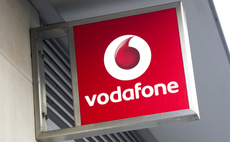Ofcom's 4G spectrum auction announcement sees it proposing a cap on sales prices
Communications regulator Ofcom has launched a consultation that will see it propose a cap on the amount of spectrum that can be bought by any one mobile network in the 4G auction scheduled for the ...
To continue reading this article...
Join Computing
- Unlimited access to real-time news, analysis and opinion from the technology industry
- Receive important and breaking news in our daily newsletter
- Be the first to hear about our events and awards programmes
- Join live member only interviews with IT leaders at the ‘IT Lounge’; your chance to ask your burning tech questions and have them answered
- Access to the Computing Delta hub providing market intelligence and research
- Receive our members-only newsletter with exclusive opinion pieces from senior IT Leaders



















